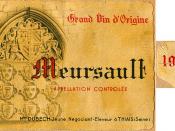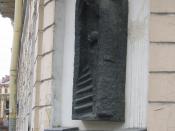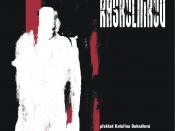In every society, it is important for individuals to adhere to a set of principles in
order to maintain order. In Dostoyevsky's Crime and Punishment and Camus' The
Outsider , however, both protagonists ignored the values of their society. Raskolnikov
and Meursault felt their own beliefs were significant, and through their actions they were
able to express them. As a result, one man was judged as a social deviant, while the other
man suffered psychologically. Through dealing with this strife, Raskolnikov and
Meursault gained a better understanding of their values and personal worth.
In the beginning both men rejected the fundamental values of society and formed
their own ideologies. Raskolnikov, for instance, believed that "we have to correct and
direct nature. But for that, there would never had been a single great man"1. In fact, he
had written an article titled "The psychology of a criminal before and after the crime".
It
stated that 'ordinary' men live according to the law and exist only to reproduce the
human race, yet 'extraordinary' men may break laws "if in his own conscience it is
necessary to do so in order to better mankind"2. Raskolnikov believed that indeed, he
was an "extraordinary man"3, but like Meursault, his beliefs were untested. As a result,
he murdered an old pawnbroker women in order to prove himself. Meursault, as well,
acted against the social norm. For example, even though it was expected of a son, he did
not show sorrow at his mother's funeral4. He did not think this was shallow, however, he
just refused to falsely show emotion when he did not feel any; "I realized that I'd
managed to get through another Sunday, that mother was now buried, that I was going
back to work and that, after all, nothing had...


